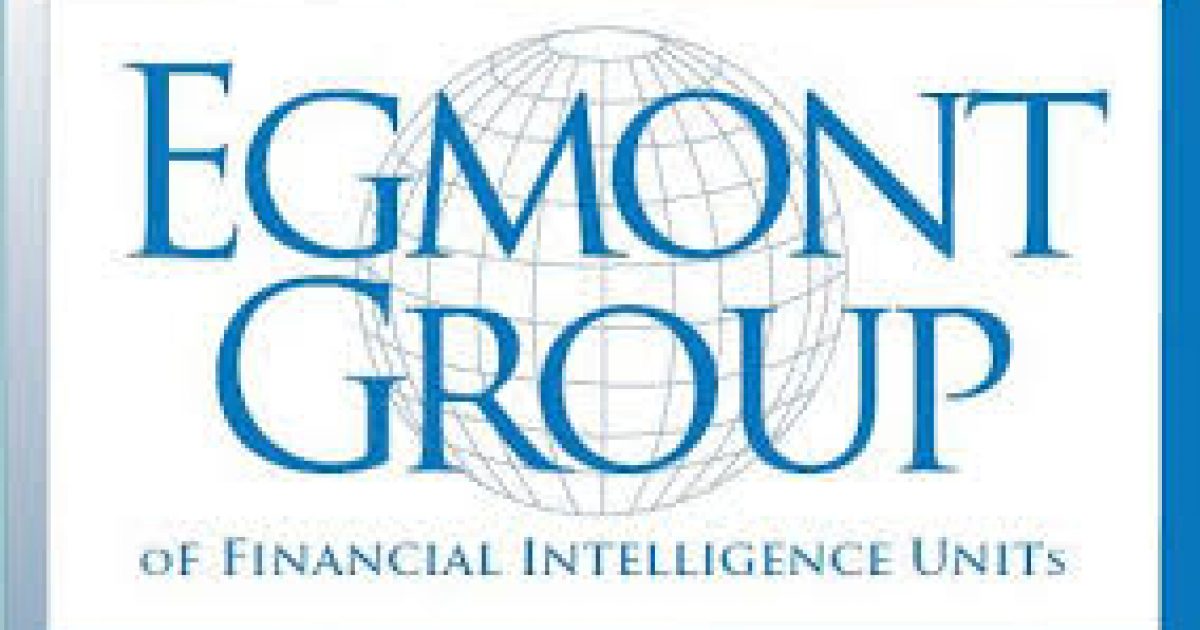Nigeria’s Suspension From The EGMONT Group: The Way Forward
By Prince Nwaeze Onu
On Thursday, the 20th day of July, 2017, the Senate of the National Assembly directed its committee on Anti-Corruption and Financial Crimes to recommend and draft a bill aimed at ensuring that the Nigerian Financial Intelligence Unit (NFIU) is separated from and made independent of the Economic and Financial Crimes Commission (EFCC). Seven days later, the Senate passed a bill creating the Nigerian Financial Intelligence Agency. The Bill excised the NFIU from the EFCC and created for this purpose a standalone NFIA with powers to employ, train, promote and discipline its workforce, independent of the EFCC or any other agency. The Bill comes with a supplementary 2017 budget to enable the NFIU Board to take off immediately.
The Senate’s apparent rush to create an independent Nigerian Financial Intelligence Agency, on the surface, stemmed from the current suspension of NFIU from the EGMONT Group. The Egmont group is a body of financial intelligence units of 153 countries that share expertise and information to combat money laundering and terrorism worldwide. Nigeria’s suspension from the group is allegedly hinged on NFIU’S lack of autonomy and the misuse by EFCC of information obtained from the group. Nigeria was given till the end of 2017 to comply with necessary requirements and create a legal framework granting autonomy to the NFIU or risk expulsion. A continued suspension of Nigeria and eventual expulsion from the Egmont group will, among other things, deprive Nigeria of foreign funding, deny the country access to intelligence reports on money laundering and terrorism financing and ultimately, hamper the country’s ability to recover stolen public funds stashed in foreign countries. In addition, Nigerian banks may be denied international ratings for credit purposes and be barred from the use of Visa and Master credit cards.
Recognising the adverse implications of Nigeria’s expulsion from the Egmont group, the question that arises is whether the Senate’s legislated panacea is indeed the way to go. Is this hurried and stealthy piece of legislation altruistic on the part of the senators or is it simply a vindictive master stroke? It is a fact that the powers and funding of the EFCC will be greatly reduced should the NFIU be excised from the Commission as is envisaged in the Bill passed by the upper chambers of the National Assembly. What is left of the anti-corruption commission will be an empty shell with attendant loss of influence and status for the Commission and its embattled acting chairman who, the senators seem to have declared a mortal foe. Many will argue that this indeed is the motive behind the Bill. In other words, it is argued that the speed and single mindedness of the senators in their zeal to carve the Nigerian Financial Intelligence Unit out of the EFCC was necessitated more by their desire to get even with Ibrahim Magu, the acting chairman of the EFCC and the presidency than a genuine wish to preserve Nigeria’s membership of the Egmont Group. This argument is burnished by the provision of the Bill domiciling the newly minted Nigerian Financial Intelligence Agency with the Central Bank of Nigeria (CBN) to be supervised by the National Assembly! In light of the running battle between the Upper legislative chambers and the anti-corruption czar, this may not be far from the truth.
It is the contention of the Senate that the NFIU serves not only the EFCC but also the Independent Corrupt Practices and Other Related Offence Commission (ICPC), Department of State Service (DSS) and the Central Bank of Nigeria and as such, need not be an appendage of the EFCC. It is also the contention of the senate that the demand of the Egmont Group is that the NFIU be made an independent body operating on its own. It is further argued that this is in line with international best practices.
With due respect to the distinguished senators, their understanding of the demands of the Egmont Group is either limited or deliberately being twisted by some interested parties. What the Egmont Group demands is that Financial Intelligence Units in all member countries be sufficiently autonomous in decision making, be professional and insulated from the influence of politicians. The Egmont Group particularly demands that FIUs be structured in a way that ensures the protection of personal information under its control. This does not necessarily require the creation of a standalone Financial Intelligence Agency. It is also a fallacy to claim that the new piece of legislation is in line with global best practices. The truth is that our current arrangement of domiciling the NFIU with the EFCC is more similar to what obtains in most member states of the Egmont Group. In the United Kingdom for instance, the Financial Intelligence Unit is an autonomous department in the Serious Organised Crime Agency (SOCA). Economic and operational exigencies do not even afford us the liberty to be different. In these days of economic recession and necessary belt tightening, can we really afford the Senate’s Nigerian Financial Intelligence Agency? Inter-agency rivalry is another reason why this Senate intervention is undesirable. Without doubt, inter-agency rivalry has been the bane of the anti-corruption war. Creating one more agency, especially one as vital as the NFIU, can only worsen an already bad situation. In most of the corruption cases lost at the high courts, it is apparent that the different agencies have been working at cross purposes instead of working to enhance each other for a common goal.
As expected, Ibrahim Magu, acting chairman of the EFCC, has condemned the Senate’s move. He sees it as the handiwork of corrupt bank officials who create enabling environment for thieves to loot the public treasury. He posits that part of the grand design is to use a former Managing Director of a bank as head of the proposed Nigerian Financial Intelligence Agency. Perhaps, more reassuring is the position of the Speaker of the House of Representatives, Hon.YakubuDogara. Speaking in the August edition of EFCC Newsletter known as EfccAlert, the speaker opposed the attempt by the Senate to move the NFIU from the EFCC to the National Assembly, saying that it would kill the fight against financial crimes and corruption. It is hoped that members of the House of Representatives will share this view and reject any effort to get the House to pass a similar piece of legislation. Our honorable members must rise in support of this plea and campaign to save the EFCC and re-energize the war against graft.
THE WAY TO GO
While there is admittedly no ready- to- fit solution to Nigeria’s suspension from the Egmont Group, the Senate’s hurried approach to the issue is certainly not the way to go. The unprecedented speed employed in passing the Nigerian Financial Intelligence Agency Bill, and the existing sour relationship between Ibrahim Magu of the EFCC and the Senate of the Federal Republic of Nigeria leaves the intention of the Senate open to debate.
Interestingly, the acting chairman of the EFCC had in July inaugurated a committee to reposition the NFIU to meet the demands of the Egmont Group. The Committee comprises of former officials of the Central Bank of Nigeria and other financial institutions, law enforcement, financial and regulatory agencies, and is chaired by Dr. AbdullahiShehu, a former Director-General of the Inter-governmental Action against Money Laundering in West Africa. In addition, the Acting President, Prof. YemiOsinbajo, has just constituted an ad hoc committee charged with repositioning the NFIU. Members of this committee were drawn from the Senate, House of Representatives, Ministries of justice, finance and interior. Other members are the executive secretary, Presidential Advisory Committee against Corruption (PACAC), representatives of the ICPC and EFCC. It has as its chairman, Senator ChukwukaUtazi, chairman of the senate committee on anti-corruption and financial crimes.Terms of reference of the committee include among other things (1) recommendation and facilitation of legal and regulatory measures to bring about financial and operational autonomy of the NFIU. (2) Recommendation of other necessary steps to be acted upon by relevant stakeholders to ensure the restoration of NFIU’s membership of the Egmont Group. The ad hoc committee is expected to conclude its work and turn in its report by the end of August 2017.
The Magu and Osinbajo approach, no doubt, is more deliberate, reflective, inclusive and most likely to proffer a less disruptive and more patriotic solution capable of granting the NFIU operational and financial autonomy within the EFCC. This will in turn give more bite to the anti-corruption war efforts of this government and, hopefully others after it.This is indeed the way forward.
Prince Nwaeze Onu




